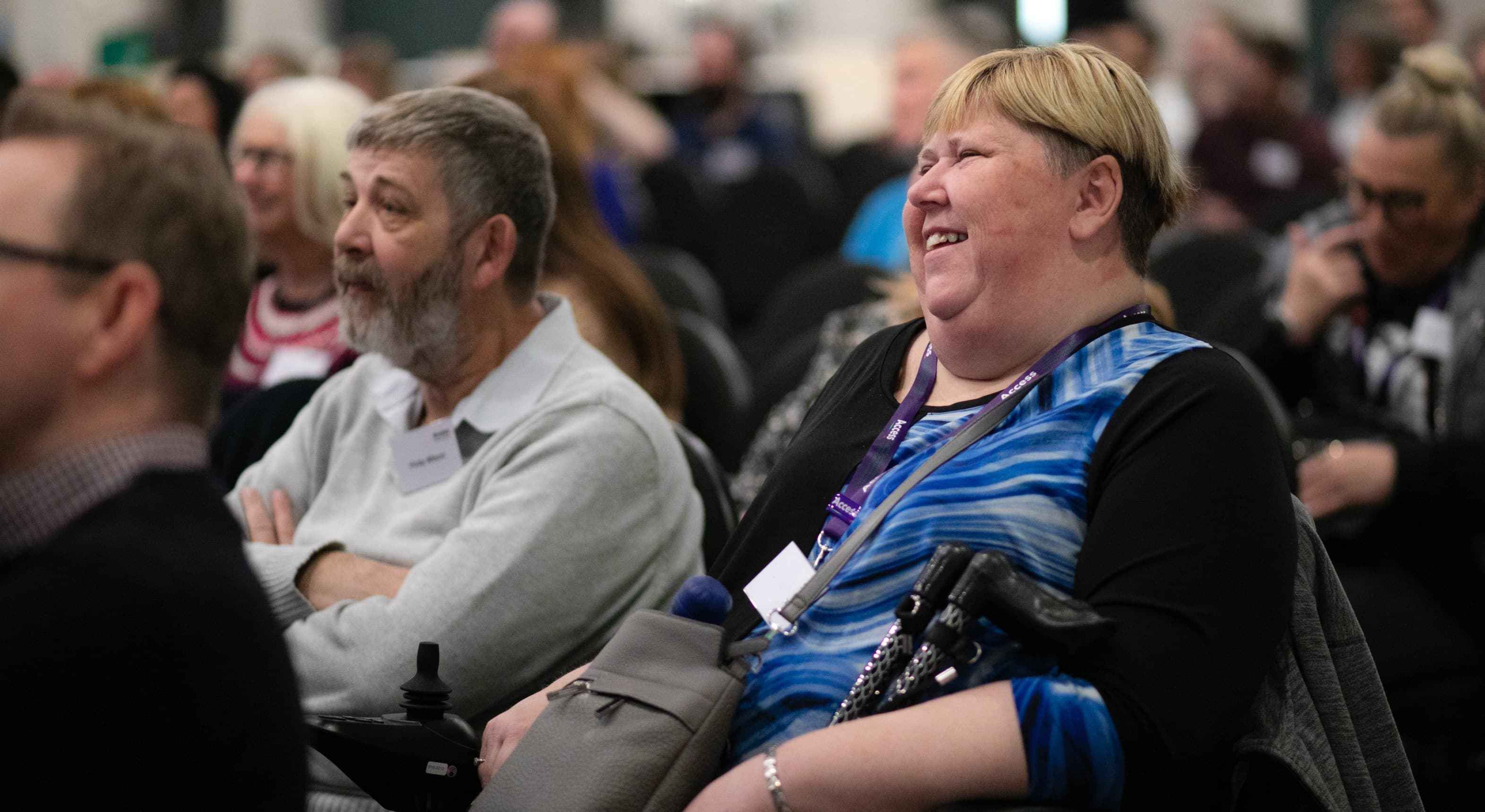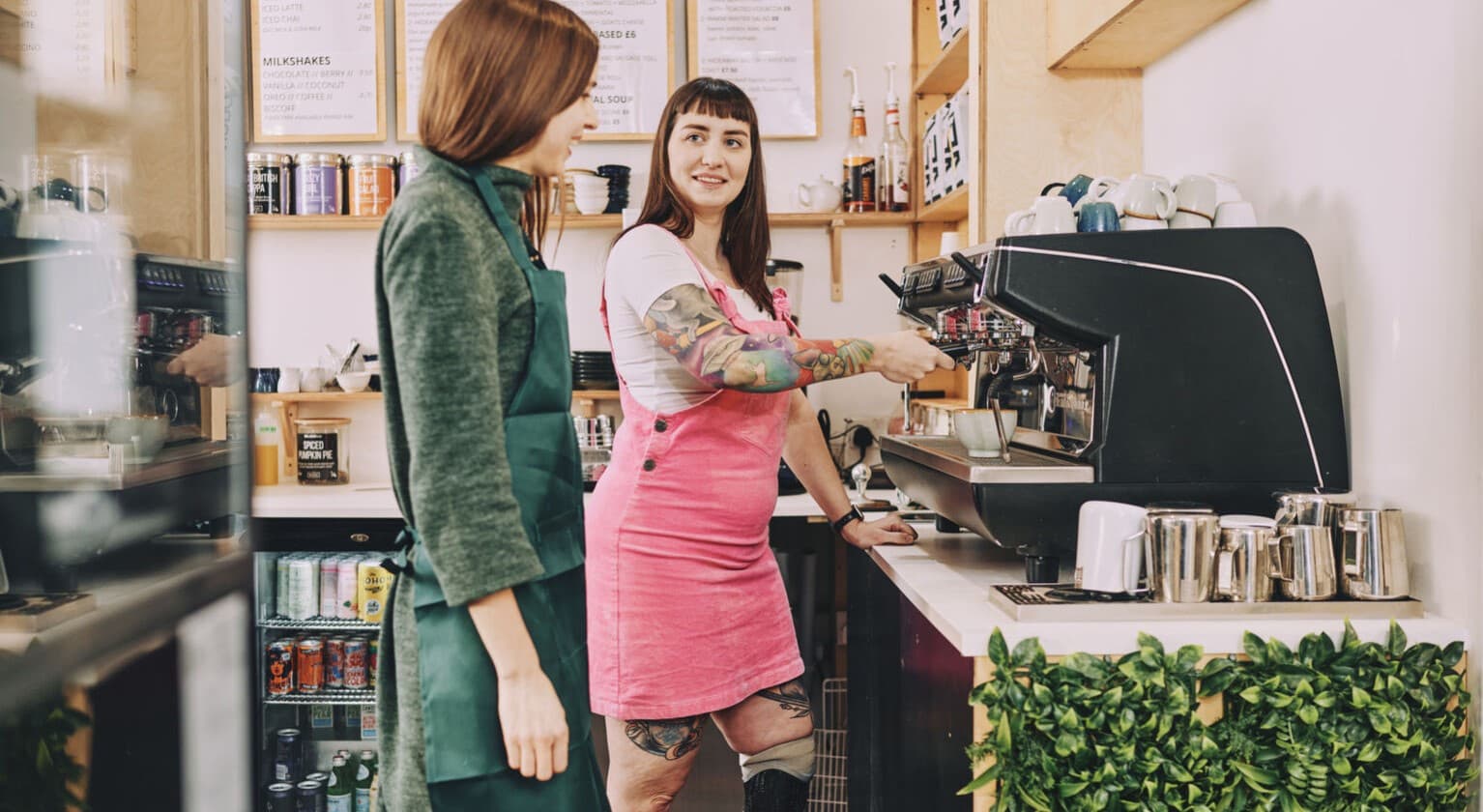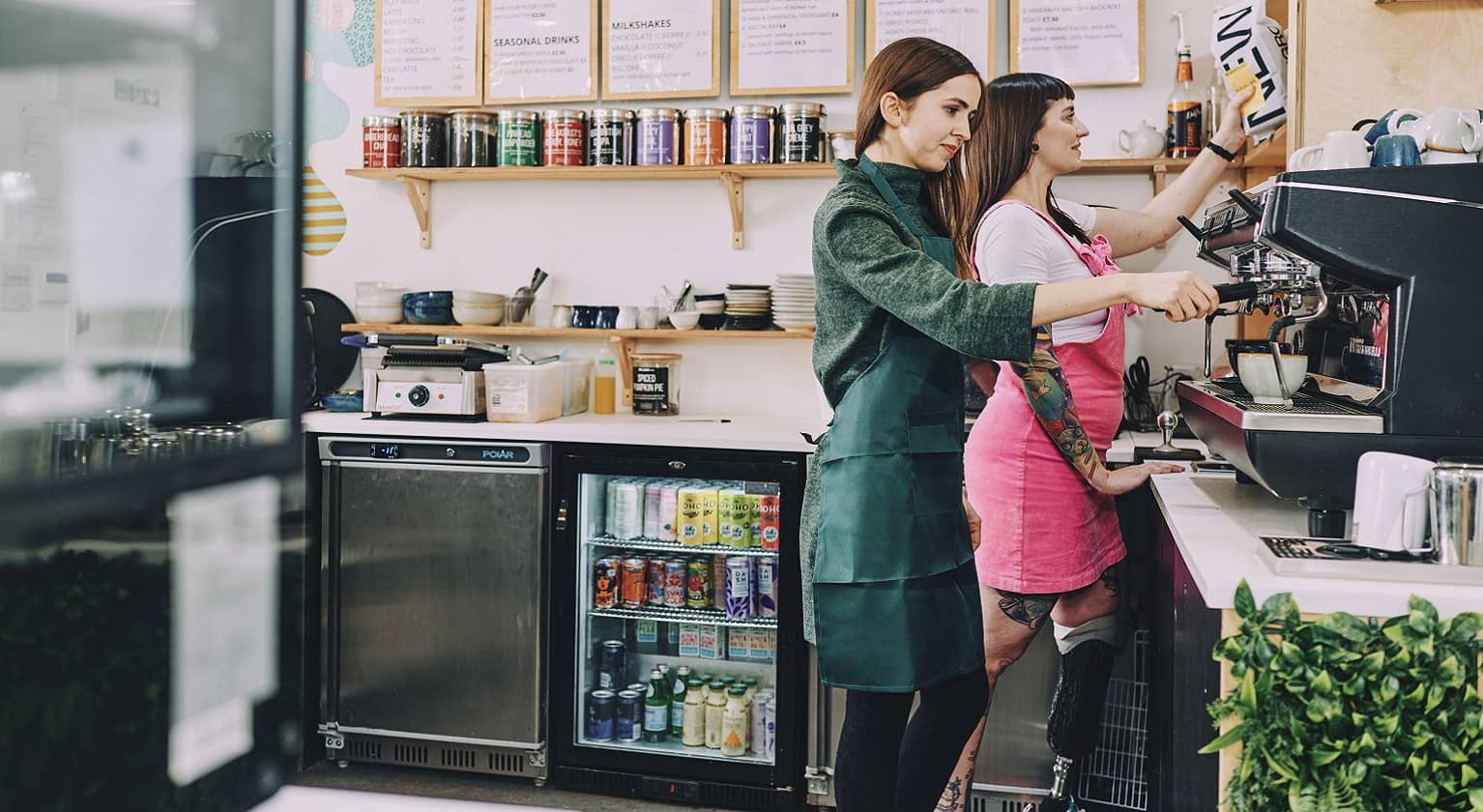Our purpose and strategy
Our purpose is Helping Britain Prosper.
How we're supporting businesses in the UK to grow and prosper.

We’re proud to be a partner of choice for British business, nearing one million UK businesses are supported by our leading digital and relationship banking services, as they start up, grow and thrive. 2024 was a year of progress for many businesses taking the next step on their journey.
£26.5 billion
Of Commercial Banking sustainable finance since 2022.
900,000
UK businesses and entrepreneurs supported with leading digital and relationship banking services, as they start up, grow and thrive.
>80,000
Businesses supported through Lloyds Bank Academy.
>32,000
Hours of support for over 9000 Black, women and disabled entrepreneurs.
100,000
Small businesses and charities helped with new banking in 2024.
£10.7 billion
Of sustainable finance supported in 2024.
During 2024, we have continued to help finance critical infrastructure projects, which are key to the UK’s future prosperity and with many core to helping the UK reach its net zero target. Businesses had access to our regular economic updates and insight, helping them to understand changing business sentiment.

We continue to drive forward our multi-year commitment to support Black-owned businesses, keeping the recommendations from the Black. British. In Business & Proud report at the centre of all our actions.
In 2024, we engaged over 5,000 Black entrepreneurs with over 20,000 hours of support through the events and initiatives that make up our Black Entrepreneurs support programme.
Our Black Business Hub, which acts as a central point for case studies and resources, also continues to grow in awareness, with over 13,500 unique visits, up from 12,000 last year.
In partnership with Foundervine, we ran our third year of the Immerse programme including two accelerators for early-stage and growth businesses with grant funding distributed to the winners of the end of programme showcase day.
Our partnership with Channel 4 to provide Black businesses with £500,000 worth of TV advertising resulted in 21 million views of these commercials; we have renewed this partnership for 2025. Each winner reported significant growth in brand awareness and opportunities arising from the campaign. Grant funding and expert mentor sessions were provided to five ‘Rising Stars’, who reported this support contributed to increased revenue, operational efficiency and team morale.

The team continues to be recognised for the quality of its support for the sector, securing Sustainable Finance Provider of the Year at the Real Estate Capital Awards and Large Financier of the Year at the RESI Awards in 2024.
Since 2018, we’ve delivered £19.5 billion of new funding to the Social Housing sector.
In 2024, we provided £2.2 billion of new funding to the social housing sector, of which £1.2 billion was sustainable or sustainability-linked funding.
We are the only funder represented on both boards of the Sustainability Reporting Standard for Social Housing and NextGeneration Initiative, a dedicated sustainability benchmark for the housebuilder sector.
We renewed our partnership with Regeneration Brainery for another three years. Since its creation in 2017, it’s worked with over 6,000 students finding hands-on work experience and meaningful networking opportunities within the property sector.
We work with over 320 housing associations, from small local associations to larger organisations with tens of thousands of homes.
In 2024, we launched a £200 million fund to support smaller housing providers. Some of this has already been deployed to support housing providers such as Golden Lane Housing, who provide quality, supported housing to people with a learning disability and autistic people. With our backing, Golden Lane Housing will continue to invest in the development of much needed homes.
Overall, in 2024, Lloyds Banking Group’s financial exposure on farming related projects amounted to almost a third of all finance tied to UK agriculture.
We also teamed up with Soil Association Exchange to create the largest, most comprehensive review of farm environmental performance ever carried out in the UK.
This has resulted in over 4,000 bespoke recommendations to 685 farmers across the UK through the detailed analysis of over 235,000 hectares of farmland.
We are working with partners across the country to deliver more investment in everything from social housing to energy infrastructure – supporting projects worth over £100 billion over the last five years alone.
In 2024, Lloyds was recognised as the number one Infrastructure & Project Finance bank in the UK for both volume of transactions and value of financing.*
In 2024, we supported more than 45 infrastructure initiatives across the UK, with a cumulative project value of more than £37 billion. This included the construction of Net Zero Teesside Power and Northern Endurance Partnership, each respectively reflecting a fully abated 742MW Combined Cycle Gas Turbine power plant alongside onshore and offshore infrastructure to transport CO2 from the Track One East Coast Cluster.
Once operational in 2029, Net Zero Teesside will capture 2 million tonnes per annum of CO2 which will be transported via the Northern Endurance Partnership infrastructure, initially storing 100 million tonnes of CO2 over 25 years.
Other notable renewables and core infrastructure projects supported in 2024 included Zayo, one of the leading digital network operators in Europe, and Statera Energy, involving the construction of one of the UK’s largest Flexible Energy Storage Systems.
*Source: Infralogic, 1st January 2024 - 31st December 2024 Loan Arranger

We are proud to have a banking relationship with over 70% of universities in the UK and are the main transaction banking partner to over 30% of larger universities. Alongside this, we support the banking requirements of 79% of Academy Trusts, this equates to almost 9,000 schools.
Over the last four years, we have committed over £1 billion of lending to Higher Education institutions, to meet their liquidity needs and support their capital development plans.
In 2024 we launched our report, co-authored with PwC UK, titled Drivers of Growth: Universities’ Enhanced Civic Role at the Heart of National Prosperity.
Our report highlights the need to focus on five key themes: Purpose, Collaboration, System Navigation, Capability and Culture, and Understanding Value.
While many institutions are already rising to this challenge, the real opportunity lies in scaling these efforts across all universities.
In 2024, we supported the Healthcare sector with over £3.9 billion of lending.
Our new Lloyds Business & Commercial partnership with the Royal College of General Practitioners was launched in November 2024 and provides banking insight and expertise to help GPs and their practices achieve their goals.
Since 2022, we provided £26.5 billion in cumulative Commercial Banking sustainable finance.
During 2024, we provided £1.2 billion in sustainable or sustainability-linked funding to the Social Housing sector, helping housing associations make their homes warmer and more energy efficient.
We delivered £10.7 billion of sustainable finance in 2024 – progress on our commitment to provide £30 billion of sustainable finance by the end of 2026.
We partnered with edie to launch our Credible Transition Plans: Reporting vs. Reality research exploring how businesses can develop credible and ambitious transition plans on the path to net-zero.

We continue to collaborate with Small Business Britain to host networking events, provide mentorship and promote visibility of disabled role models to help empower disabled entrepreneurs to thrive and succeed.
In February 2024, we hosted the launch of the Lilac Review – an independent, government-backed initiative designed to identify and overcome the barriers faced by disabled business owners. An Interim Report, released in May, explored the challenges faced by disabled entrepreneurs including the structural barriers encountered when starting and growing a business.
The Lilac Review - interim report
In December 2024, we became a founding signatory of the Disability Finance Code for Entrepreneurship, backed by DBT - designed to increase the pipeline of disabled entrepreneurs accessing finance across the industry.

Through events and initiatives in 2024, we have engaged over 3,000 women entrepreneurs with over 11,000 hours of support.
We have also launched our Supporting Women Owned Business Hub which has supported entrepreneurs with resources, guides and signposting.
As part of our ongoing commitment to the Investing in Women Code, we are dedicating resources to initiatives that promote the growth and scaling of women-led businesses through improvements in access to finance, networks, and other key resources. We are also actively involved with the Invest in Women taskforce. Backed by the Department for Business & Trade (DBT), the taskforce aims to enable more women to start and grow their businesses.
In 2024, we sponsored The Lifted Project, a data and ecosystem led approach to increase the flow of capital to regional high-growth women founders. This has enabled the creation of regional growth boards in Edinburgh, Newcastle, Leeds, Liverpool and Birmingham.

We have extended our £1 million-a-year sponsorship, taking our commitment to £15 million through to 2030, of the Lloyds Bank Advanced Manufacturing Training Centre at the Manufacturing Technology Centre in the Midlands.
This will help train and upskill graduates, apprentices and engineers in the sector, addressing the top challenge manufacturers highlight – the skills shortage.
Through our sponsorship, we have supported the training and upskilling of over 4,700 apprentices, graduates and engineers – including more than 800 in 2024 alone. We remain on track to exceed 6000 by 2030.

Lloyds Cardnet provides leading payment acceptance solutions that simplify the way businesses accept payments across multiple channels including online, in-person and over the phone.
We support over 34,000 businesses in the UK and cater to a diverse range of businesses from small merchants, sole traders to shop owners and large enterprises such as supermarkets and airlines. Our goal is to provide seamless, secure and reliable payment services for all.
In 2024 we announced a major strategic partnership with PayPoint that will see Lloyds Cardnet become the main acquiring partner for PayPoint's extensive network of over 60,000 SMEs and retailers in the UK.
We often hear that small businesses are the lifeblood of the UK economy, but the last few years have been the most traumatic that most of them will ever experience.
Throughout the pandemic we played a central role in providing financial support through the UK Government schemes in order to tide small businesses over.
And now we’ve been considering how we can best help our customers to recover.
To address these changing customer needs, we’ve formed a Business Banking Financial Assistance Team (BBFA).
The team was set up initially to support business customers who were facing into the storm, and now it plays a crucial part in our role of supporting the UK's recovery.

The Lloyds Bank business recovery hub provides information on improving your cash flow, what to do if your business is falling behind on payments, and making changes in your business.
10 March 2025 | Elyn Corfield
UK SMEs have shown time and again that they are not only able to withstand uncertainty, but thrive in it. And entrepreneurs are especially skilled at turning challenges into opportunities. So, with that in mind, what can UK SMEs expect from 2025?
23 January 2025 | Charlie Nunn
Charlie Nunn meets our clients at Newlyns Farm, to talk about the part they play in their local community, the role sustainability plays in farming, and how they’re adapting to new challenges.
18 December 2024 | Rachel Finesilver
What is the Voluntary Carbon Market (VCM) and how can it help reduce or remove greenhouse gas emissions, and direct funds to critical areas?